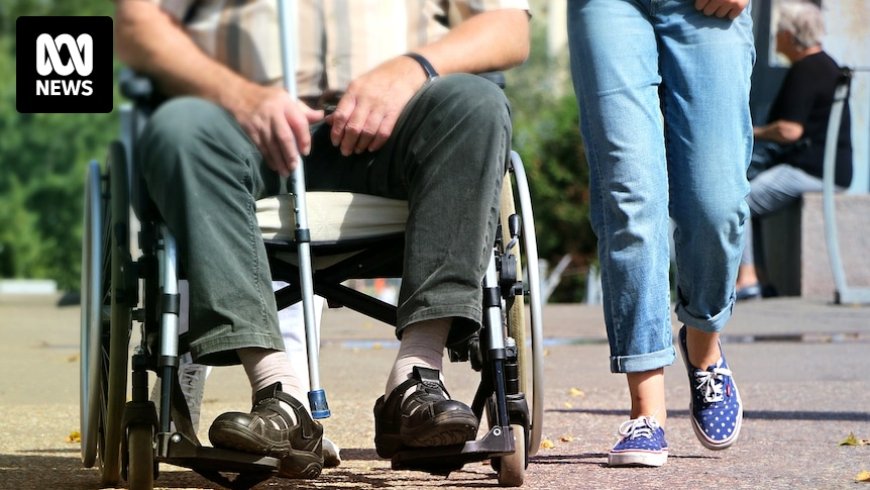Grattan Institute proposes changes to strengthen NDIS amid delays in foundational supports rollout
A recent report suggests four policy adjustments to enhance the National Disability Insurance Scheme (NDIS) as the implementation of foundational supports faces delays. The report aims to optimize NDIS spending, broaden support beyond the scheme, and establish clearer guidelines for eligibility and funding allocation. The proposal could potentially save billions of dollars over the next decade. NDIS Minister Mark Butler has acknowledged the importance of ensuring the sustainability and effectiveness of the scheme.

A new report has recommended four policy changes to 'save' the National Disability Insurance Scheme (NDIS), as federal and state governments continue to negotiate a funding deal for a new tier of services to be set up outside the scheme.
That new system — called foundational supports — was agreed to in 2023 and initially slated to begin by July 2025, but those services are still a long way off and yet to be properly defined.
The Grattan Institute's report, released on Sunday evening, posited that a 'rebalancing' of current NDIS spending could help save tens of billions of dollars while also making sure more people outside the scheme could get support.
The NDIS has been projected to cost $48 billion this financial year, before overtaking spending on defence by 2026-27 and reaching $63 billion by 2028-29.
However, most Australians with disability are not supported by the scheme. The NDIS' 717,000 participants account for about 13 per cent of the estimated 5.5 million Australians with disability.
'The NDIS has become the only game in town: you either get a NDIS package, or you get minimal mainstream services,' Sam Bennett, Grattan's disability program director said.
Foundational supports: the proposal
- Lower-level supports not delivered through the NDIS
- To be jointly funded by the Commonwealth and states and territories
- Run by the states in places like education and health services
- First stages to focus on 'programs that build social connections' and 'information supports to help people find other services'
- Subsequent stages to be larger and more targeted
The Grattan report has called for 'firmer boundaries' clarifying who the NDIS was for, changes to how claims were managed to make outcomes more consistent, and a new National Disability Agreement to define the responsibilities of different levels of government.
But the biggest saving would come from a 'modest' redirection of funds from the pool of money set aside for individual plans, into a new tier of foundational supports specifically for kids with developmental delay and people with psychosocial disability.
Overall, the thinktank estimated its blueprint could save $12 billion over 10 years and then a further $34 billion over the same period by not requiring new money to fund foundational supports.
Grattan senior fellow Alistair McEwin, a former disability discrimination commissioner, said the institute was in 'no way' proposing anyone be kicked off the scheme unnecessarily.
'What we're saying is that supports for some children with developmental delay and people with psychosocial disability can be provided more effectively, more quickly and more fairly in other state or territory-based schemes,' he said.
In a statement, NDIS Minister Mark Butler said the government would consider the report.
Alongside foundational supports, the Albanese government has been making other changes to the NDIS in pursuit of the 8 per cent annual growth target it set two years ago.
This year's budget projections had the scheme on track to meet the 8 per cent target by 2026-27.
However, they assumed foundational supports and the shifting of services back to the states (which ceased most disability services when the NDIS began) would have started by this financial year.
Mr Butler said this week that funding negotiations with the states and territories were ongoing, and the Commonwealth was working to finalise them as soon as possible.
One of the main drivers behind the NDIS's growth is the larger than expected numbers of kids — many of whom are autistic or have developmental delays — joining and then not leaving the scheme due to the lack of services elsewhere.
Melbourne University associate professor Sue Olney, who has been researching the NDIS for more than a decade, said the scheme was never designed to support all people with disability.
'The transition is critical. It's not enough to focus on changing the NDIS unless there are other supports in place for people to move to,' she said.
Muriel Cummins of advocacy group Every Australian Counts said the disability community was diverse and what foundational supports eventually offered needed to reflect that.
The NDIS has transformed the lives of its participants, enabling many to live more independently, gain employment, and give back to the economy through taxes.
According to the source: Australian Broadcasting Corporation.
What's Your Reaction?
 Like
0
Like
0
 Dislike
0
Dislike
0
 Love
0
Love
0
 Funny
0
Funny
0
 Angry
0
Angry
0
 Sad
0
Sad
0
 Wow
0
Wow
0
























































































































































